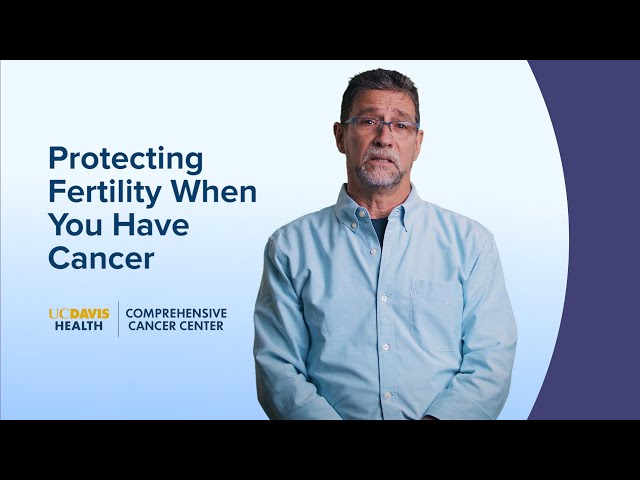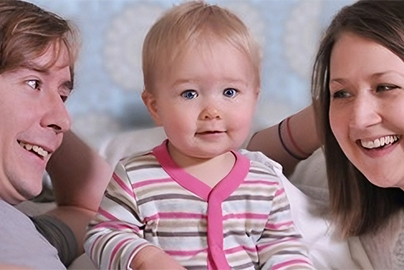Adolescents and Young Adults Cancer Care
Fertility Preservation for Young Adults with Cancer

Cancer treatment, such as chemotherapy, radiation therapy, or surgery, may affect a young person’s fertility or ability to have children.
Fertility preservation is the process of saving or protecting eggs, sperm, or reproductive tissue so that a person can use them to have children in the future. Visiting a fertility specialist can help young people with cancer know their options. It’s important to consult with a fertility specialist prior to starting cancer treatment, if possible.
Speak up and ask your oncologist or care team members about options for fertility preservation! These questions can help get the conversation started:
- How will my cancer and cancer treatment affect my fertility?
- Based on my treatment plan, what is my risk of infertility [high, moderate, low]?
- What are my options for fertility preservation before I begin cancer treatment?
- How much time do I have to pursue fertility preservation before I begin cancer treatment?
- If I don’t preserve my fertility before treatment starts, what are my options later?
- Can you refer me to a fertility preservation specialist to discuss all my options?
- If I decide on preservation, what tests will I need before I begin?
Starting the conversation
- Don’t wait for your care team to bring up fertility preservation - you can ask for more information or a referral yourself!
Insurance coverage and costs vary
- Some health plans cover the cost of fertility procedures for cancer patients. You can appeal the decision if your health plan tells you that fertility preservation isn’t covered by your plan.
Financial assistance can help
- There are numerous options for financial assistance. Make sure you talk with your fertility specialist about this as well as your care team.
A fertility preservation specialist can help you decide what options are best for you, which may include:
Men and Adolescents
- Sperm freezing
- Surgical sperm extraction
- Electroejaculation
- Testicular shielding
- Testicular tissue freezing (experimental)
Women and Adolescents
- Egg freezing (unfertilized)
- Embryo freezing (fertilized egg)
- Ovarian shielding
- Ovarian transposition
- Conservative surgical approaches
- Ovarian tissue freezing (experimental)
- Hormonal suppression (experimental)
Pediatrics
- Ovarian or testicular tissue freezing (experimental)
For more information and next steps, first talk to your oncology team. It will also be important for you to ask your health plan about insurance coverage for fertility preservation.
-
How to Protect Fertility When You Have Cancer - UC Davis Comprehensive Cancer Center
Talk to your oncology team about your fertility options
Cancer treatments may impact fertility. Dr. Malogolowkin of UC Davis explains this and suggests ways to maintain future childbearing potential.
-
Save My Fertility
Explore morearrow_forwardThis online fertility preservation toolkit is a comprehensive resource for cancer patients, their families, and healthcare providers, offering guidance on fertility preservation before, during, and after cancer treatment.
-
Oncofertility Consortium
Explore morearrow_forwardThe national consortium explores and expands options for the reproductive future of cancer survivors.
-
Alliance for Fertility Preservation
Explore morearrow_forwardThis is a charitable organization dedicated to advancing fertility preservation, with experts from various medical and legal fields.
-
Livestrong Fertility
Explore morearrow_forwardThe nonprofit is dedicated to providing reproductive information, resources and financial support to survivors whose cancer and its treatment present risks to their fertility.







